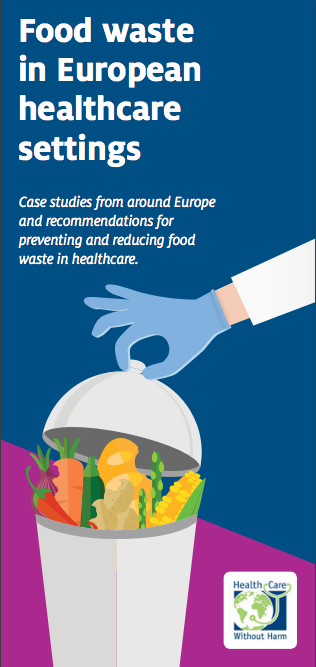HCWH Europe release food waste in European healthcare brochure
During the first six months of 2016, Health Care Without Harm (HCWH) Europe carried out interviews with European hospitals and healthcare systems about their strategies to prevent and reduce food waste. The case studies described in this brochure are the result of these interviews with seven hospitals from four European countries (Denmark, France, Spain, and the UK), two national initiatives from Ireland and The Netherlands, and two regional programmes from Denmark and Sweden. Examples from these institutions, whose experiences can serve as a role model and inspire others, as well as some recommendations for the future, are described in detail. We hope this document serves as a basis for reflection, and finally gives the problem of food waste the recognition it deserves in the healthcare sector.
[Click here to read the brochure online or download a copy]
As well as examples of best practice, HCWH Europe also provides 10 recommendations for reducing food waste. It is estimated that approximately 100 million tonnes of food are wasted annually in the EU across all stages of the food chain from production to consumption; 14% of this food waste is attributed to food services alone. Food waste is an expensive problem, with an estimated cost of €143 billion for disposing food to landfills. Food waste does not only have an impact on the economy, however, but also on society and the environment.
In fact, reducing food waste is key to ensuring both food and water security and reducing the gap between rich and poor on a global scale. Food waste increases the price of products; nothing that creates more interdependencies between nations than food. Therefore, if food resources were managed better at the production and consumption level, access and availability to appropriate meals would improve.
If you are interested in learning more about food in European healthcare, please visit our sustainable food publications page.

